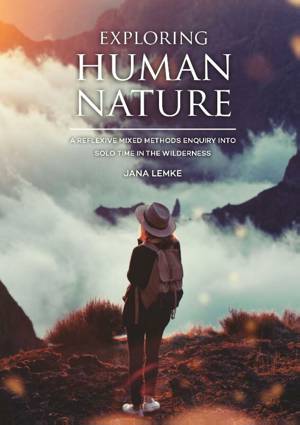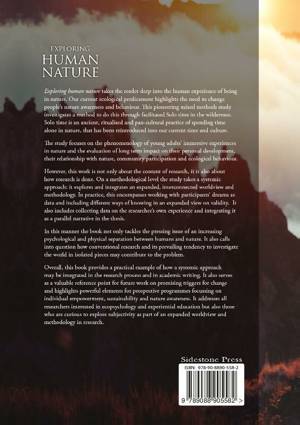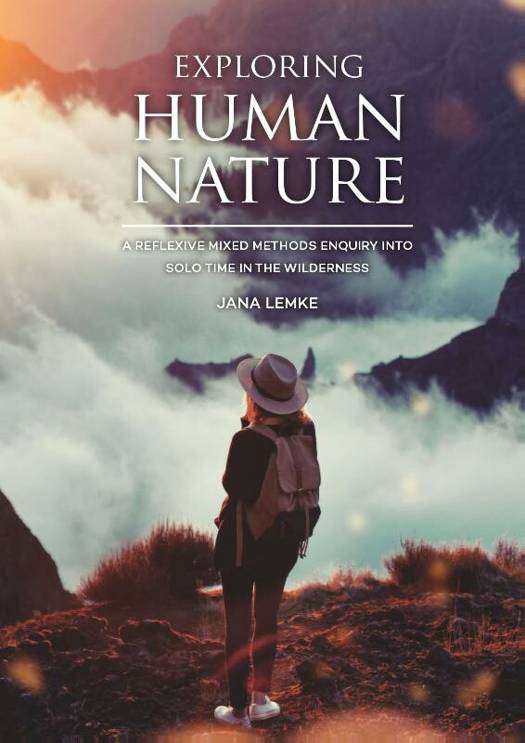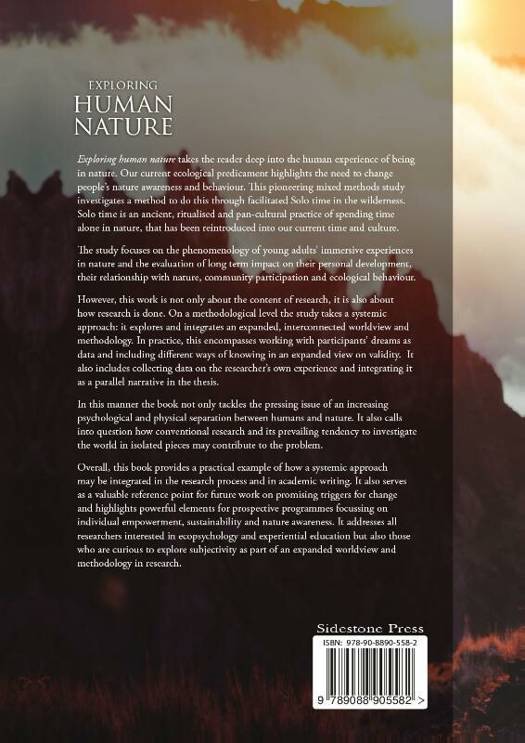
- Retrait gratuit dans votre magasin Club
- 7.000.000 titres dans notre catalogue
- Payer en toute sécurité
- Toujours un magasin près de chez vous
- Retrait gratuit dans votre magasin Club
- 7.000.000 titres dans notre catalogue
- Payer en toute sécurité
- Toujours un magasin près de chez vous


Exploring Human Nature
A Reflexive Mixed Methods Enquiry Into Solo Time in the Wilderness
Jana Lemke
Livre relié | Anglais
95,00 €
+ 190 points
Format
Description
Exploring Human Nature takes the reader deep into the human experience of being in nature. Our current ecological predicament highlights the need to change people's nature awareness and behavior. This pioneering mixed methods study investigates a method to do this through facilitated Solo time in the wilderness. Solo time is an ancient, ritualized and pan-cultural practice of spending time alone in nature, that has been reintroduced into our current time and culture.
The study focuses on the phenomenology of young adults' immersive experiences in nature and the evaluation of long term impact on their personal development, their relationship with nature, community participation and ecological behavior.
However, this work is not only about the content of research, it is also about how research is done. On a methodological level the study takes a systemic approach: it explores and integrates an expanded, interconnected worldview and methodology. In practice, this encompasses working with participants' dreams as data and including different ways of knowing in an expanded view on validity. It also includes collecting data on the researcher's own experience and integrating it as a parallel narrative in the thesis.
In this manner the book not only tackles the pressing issue of an increasing psychological and physical separation between humans and nature, it also calls into question how conventional research and its prevailing tendency to investigate the world in isolated pieces may contribute to the problem.
Overall, this book provides a practical example of how a systemic approach may be integrated in the research process and in academic writing. It also serves as a valuable reference point for future work on promising triggers for change and highlights powerful elements for prospective programs focussing on individual empowerment, sustainability and nature awareness. It addresses all researchers interested in ecopsychology and experiential education but also those who are curious to explore subjectivity as part of an expanded worldview and methodology in research.
The study focuses on the phenomenology of young adults' immersive experiences in nature and the evaluation of long term impact on their personal development, their relationship with nature, community participation and ecological behavior.
However, this work is not only about the content of research, it is also about how research is done. On a methodological level the study takes a systemic approach: it explores and integrates an expanded, interconnected worldview and methodology. In practice, this encompasses working with participants' dreams as data and including different ways of knowing in an expanded view on validity. It also includes collecting data on the researcher's own experience and integrating it as a parallel narrative in the thesis.
In this manner the book not only tackles the pressing issue of an increasing psychological and physical separation between humans and nature, it also calls into question how conventional research and its prevailing tendency to investigate the world in isolated pieces may contribute to the problem.
Overall, this book provides a practical example of how a systemic approach may be integrated in the research process and in academic writing. It also serves as a valuable reference point for future work on promising triggers for change and highlights powerful elements for prospective programs focussing on individual empowerment, sustainability and nature awareness. It addresses all researchers interested in ecopsychology and experiential education but also those who are curious to explore subjectivity as part of an expanded worldview and methodology in research.
Spécifications
Parties prenantes
- Auteur(s) :
- Editeur:
Contenu
- Nombre de pages :
- 280
- Langue:
- Anglais
- Illustré:
- Oui
Caractéristiques
- EAN:
- 9789088905599
- Date de parution :
- 02-05-18
- Format:
- Livre relié
- Format numérique:
- Genaaid
- Dimensions :
- 183 mm x 257 mm
- Poids :
- 816 g








